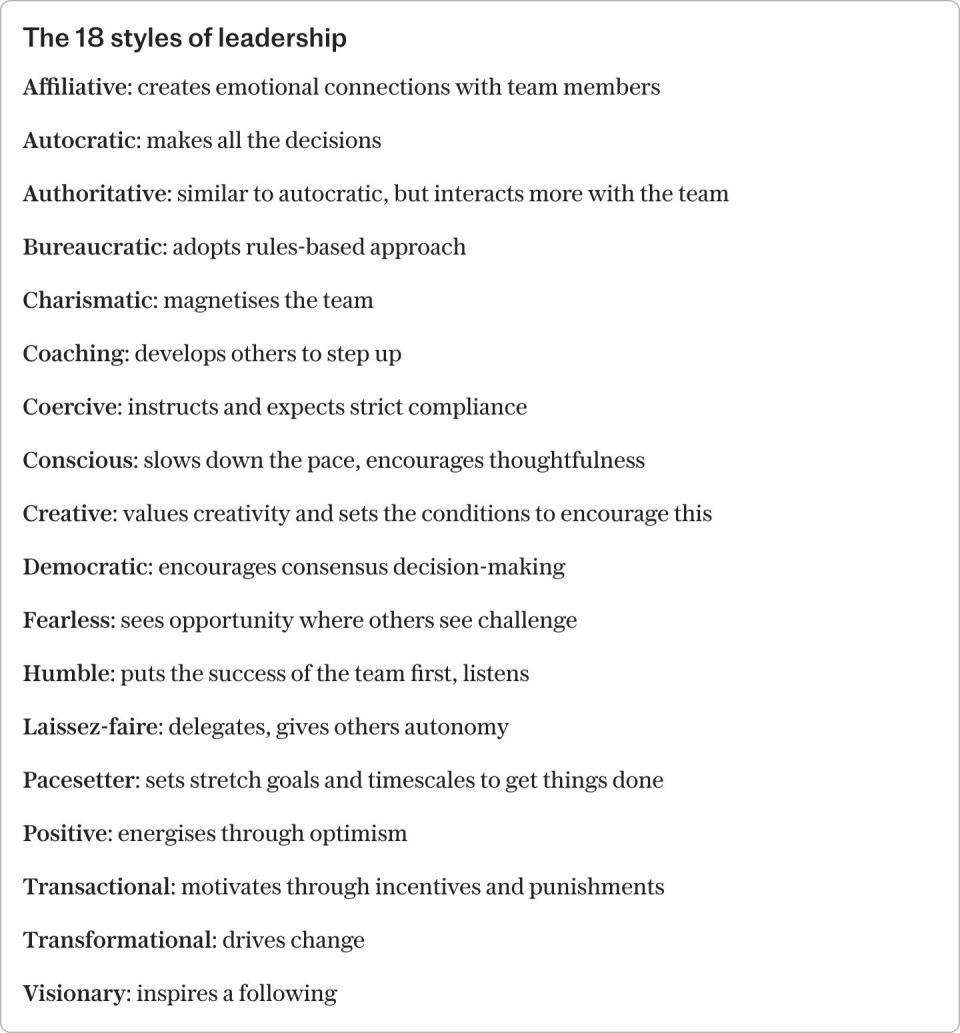‘Dear Helena, I don’t know how to interact with my workmates since I got promoted’

If you have a question you would like Helena to answer, get in touch at helena.morrissey@telegraph.co.uk.
In her regular column, The Telegraph’s Helena Morrissey has provided advice on how to maintain a career and a family, how to overcome imposter syndrome and shared what she likes and detests about the CVs she receives.
Today she answers a question from a Telegraph reader who has recently been promoted at work but isn’t sure how to act now that he’s managing the colleagues he was once friends with.
Hi Helena,
I started out my working life as an engineer and as time has gone by I’ve taken on more senior roles.
In recent times, requests to help with line management have become routine, to ease the burden on my line manager.
I’ve always been someone who wants to be part of a greater team and don’t see myself as introverted, though not extroverted either. I like to get on with people.
That said, line management duties call for more discretion and stronger adherence to corporate rules and understanding, and I’ve found this difficult.
When speaking to colleagues I’ve been on relaxed terms with, I’m now having to exercise more discretion on how I respond to things such as reasons for lower compensation increase, why the company is tightening its belt, documentation control, etc.
Some of this may alarm you having been in a position of leadership, but it’s all about career ladder and how we mature as we move up the ranks.
I don’t want to seek more respect as a team leader, but I want people to understand I have boundaries to my conduct. How should I convey this, without coming across as suffering a change of personality and unapproachable?
It’s something I haven’t managed to achieve.
Is it too late? Does my personality ride with me until I move companies and start afresh?
Thanks in advance,
Anon
Dear reader,
Rest assured, it’s not too late.
With increased authority comes greater responsibility, but that doesn’t mean becoming someone completely different, just evolving.
And nothing in what you say alarms me – on the contrary.
No one starts out as the boss (unless they have founded the company) and I promise, everyone needs to adapt as they “move up the ranks”.
You recognise the key point; as team leader, you need to reset your relationships with colleagues.
I experienced this in extremis when appointed CEO of Newton Investment Management, a promotion no one expected.
I was 35, a working mother of five young children (relevant because it was integral to my colleagues’ perceptions) and had no experience running a business.
One minute I was sitting alongside my co-workers, the next I was their boss. I’m sure they found it at least as difficult an adjustment as I did.
At the time, I muddled through and the learning curve was steep and painful – I learned from my mistakes. But with the benefit of hindsight this is what I would do in that situation today.
First, I would have one-to-one conversations with everyone. Those discussions create a line-in-the-sand moment. It’s an opportunity to check in, ensure your team members know you will support them, outline the goals and their role in achieving them.
If they have already been set formal objectives by the previous manager, discuss whether these still apply, whether each person is on track to deliver and their own ideas for their next goals.
It’s also important in your new role to identify any areas where they might want some extra help, are struggling, or are seeking development.
You don’t need to sound high and mighty, or say “things are different now”. Just by arranging to meet, and being clearly “the boss” – one who’s both supportive and in charge – you will be recalibrating the relationship.
Then set up regular meetings with each colleague, again being in control, and giving you the chance to communicate – and to listen.
I appreciate you don’t want to seem unfriendly, but you do need to keep some distance. That just means not being your new subordinates’ “best buddy”. From your own account, it sounds as though you are already well placed for this. Just keep using your good judgement.
There will be some social occasions when it may be best to go along for an hour or so, then leave your colleagues to enjoy themselves. It can be uncomfortable socialising with the boss.
You have clearly identified the need to support company policies even if they won’t be popular – lower pay awards, for example – and this extends to senior management too. Never speak ill of your own boss, even if you disagree with a decision. This is an essential part of making the transition from team member to manager.
And never, ever show any favouritism based on past friendships. Merit must win out – and be seen by others to win.
You say you “don’t want to seek more respect as team leader” but actually it is important that you do. Remember you are being asked to take on management responsibilities for a reason. Your own boss clearly thinks you are capable.
If someone external had been appointed to lead the team, you would expect people to show them respect – and would do so yourself. It’s part of that recalibration process and will help your colleagues too – it’s confusing having a boss who sees themselves as one of the gang. They need to feel you have their back and that comes partly from seeing you as “above” them, with more power.
You’ll win their respect if you can demonstrate to your more junior colleagues that you are looking out for them, thinking ahead about what the team needs to succeed, and speaking up for them when they are not in the room.
I mentor someone who is new to management. He wanted to build out his team’s scarce resources to alleviate the pressure they were under, but was struggling to get the budget for new hires.
We discussed how important it was for him to show the team that he could secure approval for at least some of the roles, so we rehearsed the arguments until they were watertight.
He got all the approvals and has now hired the extra staff and reorganised the work. The team’s morale has vastly improved.
Of course, if your business is cost-cutting that presents extra challenges: you need to show that you support the overarching business goals while keeping your team motivated
Staying positive is important – not glossing over every obstacle or being unrealistic, but showing a way through and inviting ideas.
Make sure everyone knows they can bring you their challenges; some managers fall for “emperor’s new clothes” – no one tells them the reality until it’s too late.
As the late General Colin Powell, former US Secretary of State and leadership guru put it: “The day soldiers stop bringing you their problems is the day you have stopped leading them”.
If you need a mentor to help you navigate through these challenges, just ask someone you admire and who supports you. People are usually flattered to be asked and, unless they are snowed under, will say yes.
Be aware of your natural leadership style. Whatever it is, be conscious to include your colleagues in brainstorming around complex decisions, listen to their ideas and show that you value their contribution. Make it clear they have the licence to disagree. Encourage robust debate.

However, remember it is your job to make decisions and then to lead the way you think is most likely to achieve results. So once you’ve made a decision, take responsibility and communicate progress. That way you will build trust and a following.
And keep delegating work to those who you assess to be up to the task – you have been given opportunities to develop, and a good manager in turn creates those for other employees.
If you are giving someone a stretch project, stay close but let them give it a go. I’ve found that many people really rise to the challenge, but like to know help is at hand if needed. Encourage openness.
I am excited for you – your nuanced email suggests you have great potential to lead, not just manage through.
One thing, however, gives me pause. It is not clear from your email that you have been formally promoted.
It sounds as though you may have been asked to take on management responsibilities without the job title (“requests to help with line management have become routine… to ease the burden”).
A big job title certainly does not guarantee respect – in my new chief executive role I felt I needed to earn the credibility to match. But still, your job as a de facto manager will be harder if you don’t have the formal recognition. If this applies, please ask for the promotion (and associated pay rise)
If it’s not forthcoming, this is the scenario where you may want to make the decision to “move companies and start afresh”, as it suggests that while your own team might be able to see you in a different light, your boss doesn’t.
Taking on responsibility without the commensurate authority doesn’t doom you to failure but makes it so much harder to succeed.
Hopefully I have misread between the lines but if anyone reading this knows this applies to them, please take action – out of self-respect. You need to be recognised for the job you are actually doing!


 Yahoo News
Yahoo News 
